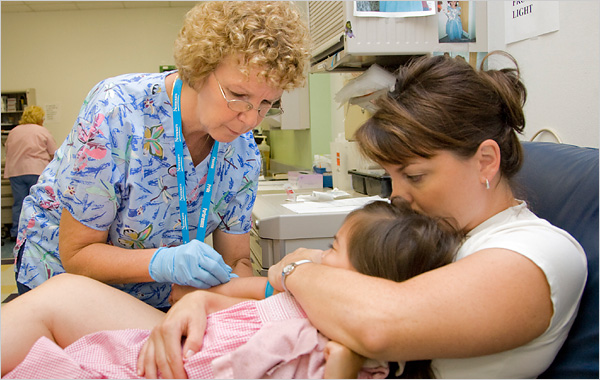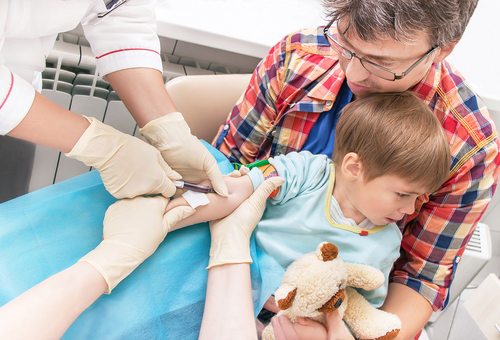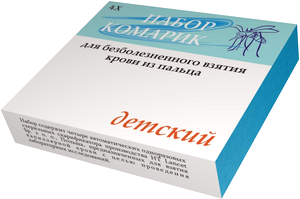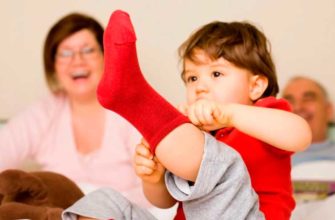From birth, every child needs to have blood tests, and many children react to this with a cry and cry, which is why mother begins to worry. But for what reason are children so afraid of this procedure? Let's try to understand the causes of the child’s fear and what can be done in this situation so that the baby ceases to be afraid to donate blood.

Why are children afraid to donate blood
From the age of 6 months, a certain reaction is formed in children to doctors and nurses in white coats, especially if they have already been vaccinated. Growing up, the baby from the conversation of adults understands that he will have to be vaccinated or donate blood for analysis.
Usually fear manifests itself very strongly in those years when children begin to realize and understand everything around.
The main reason for fear is the pain that the baby experiences at the time of the injection. In addition, fear can be affected by:
- Cold hands of a doctor;
- Metal instruments and their sound;
- Crying and screaming of other kids from the office;
- A long wait for their turn in the stuffy corridors of the hospital.
What else can affect the formation of fear of giving blood?
- A child may have a fear of giving blood for analysis if an aunt in a white coat once hurt him. The child remembers the pain he once experienced for a long time, his negative attitude also develops in relation to his aunt in a white coat, which made the injection. That is why the baby immediately begins to cry the next time he visits the hospital.
- Sometimes fear is formed through the fault of the parents - when the child ceases to obey, then they begin to intimidate him: “the doctor will come and give you an injection”. In children's clinics, this can often be heard and this is a common mistake of young mothers.
- Often parents themselves experience fear, which is transmitted to their child. And when parents or doctors begin to report the baby for hysterical behavior in the office, they only complicate the situation, because of which fear can take root in the child for many years.

Causes of fear in children of different ages
If a young child quickly forgets an unpleasant injection, then older children, as well as preschoolers, will remember it for a long time, it is at that age that their imagination and emotions develop actively.
Toddlers of early and preschool age are hypersensitive and vulnerable, so the child can experience fear even after a little pressure on the arm or raising the voice.
Blood donation from a vein causes fear in older children.Many schoolchildren, even if they are already 10 years old, are also panicky afraid to donate blood and this condition may be due to various reasons.
It happens that fear remains from early childhood, or maybe they are afraid of blood. If the problem is not solved, then such a fear will remain for life.
We also read: How to take blood from a vein for analysis in an infant
How to help your child fight his fear
First, you can play doctor at home with the child, for this, use the characters of his favorite cartoon. Explain that his favorite characters often donate blood and are not afraid at the same time. Play a play with your child, and to make an injection, come up with a mosquito that will fly in and will not painfully bite on your finger. Or, for example, the baby can be a doctor, and you can be a patient. Try to convince the child that going to the hospital is also a kind of game in which he is the main character, and after testing he will be rewarded.
Then tell us why injections are needed.
Never! Do not intimidate the baby with a hospital, vaccinations and aunts in white coats.
At the time of the injection, distract the baby. If this is a baby, then you can distract him with a rattle, and anoint the place of the injection with an anesthetic. Older children are allowed to watch the cartoon on the phone (tablet) or distract with an interesting toy.
Additional recommendations for parents:
- Never lie to the child, it’s better to tell in advance that they’ll put him a tee, tell him how it will happen. Explain that the pain will be like a mosquito or nettle bite;
- While taking blood, hold the baby by the handle and praise him;
- Tell your child more often about his friends or relatives who are not afraid of injections, and how this helped their health;
- Game therapy helps some children. Have the baby portray his fear in the picture. Also, the child can be invited to inflate the ball, imagine that it is fear, then blow it out and convince that there is no fear now.
Methods of psychological preparation of the child before blood donation:
- Be absolutely calm and be sure to distract the child while waiting for the procedure.
- Try to be as far away from the treatment room as possible. Everything that you and the child can hear from it will more resemble scenes from the movie “Saw”. Hysterical children and parents pale with horror level the previously conducted psychological training.
- Regardless of the age of the child during the procedure, always be near him (always go into the office with the child), this will become a good emotional support for him.
- Keep babies and babies in their arms, so they will feel your support, warmth and protection.
- If the child is of school age, then explain to him how they take blood for analysis and discuss this issue with him. It happens that children at this age, on the contrary, the presence of parents provokes tears and protest. So rely on your child’s psyche.
- Having entered the office, do not lead the child immediately to the procedure, let him look around and get used to the situation.
- It is advisable not to let the child look at the procedure for taking blood, distract him.
- You can send dad with a child. Many mothers note the fact that children are less naughty and afraid with their dad.
In no case do not yell at the baby. Do not try to force him to sit down or use force in any other way (this will very negatively affect his psyche and next time any of your tricks will be in vain).
If the above methods do not help you, then you can use the services of blood sampling at home or in a private clinic. A more humane and attentive attitude always helps in the fight against fears.
After passing the analysis, be sure to praise the child and give him a gift. Tell me how much you love him and how proud you are of his courage. Some parents agree in advance with the baby about what gift he wants to receive after he donates blood.
The surrender procedure will be easier for you
The Komarik set and automatic scarifiers will significantly reduce pain during blood donation. You can buy them at a pharmacy or order online.

Private clinic. In it, you are guaranteed tactful treatment and care. Often, the atmosphere of municipal hospitals sets in a negative mood. Even an adult does not feel comfortable there, let alone a child.
Mommy tips from forums
Katty: Neither persuasion, nor threats, nor gifts help me. I consulted with a child psychologist, they gave me a definite answer - only a consultation with a psychologist, and the sooner the better.
VikkoTorio: In general, try to buy special superthin needles at the pharmacy that you are painlessly pricked with. A lot has been written about them on the Internet. You can come straight to your nurse with your needle. I have not tried, but many of my friends say that they didn’t feel anything at all, they say there was a micro-puncture. He can see that he was stabbed unintentionally and the next time he won’t be afraid. I think the point here is precisely the pain of the puncture. I also screamed while I was pierced with a finger, and as soon as the matter was done, I fell silent and push at least half a day)
alena84: My daughter was 3 years old when I explained to her - “now we are going to take an analysis. We will come to my aunt, she will do RAAAZ and that’s all!) It will only hurt a little bit, quickly, RAAZ and that’s all, you’re my big girl, they just cry And you aren’t, right? You have done well! ” And it helped) My daughter whimpered when she saw the “Needle” and then cried for 1 min and calmed down right there in the office while she was drawing blood into the tubes. Now we walk with pride that we did not cry)
Anik: It depends on what kind of child. My elder is just panicky afraid of doctors, pain, type of blood. It was impossible to persuade him to go for analysis. All the most unthinkable things were promised to him, but he wasn’t and that’s all. So we just kept the three of us banal. was. The nurse swore at us that such a child, but what to do ... But the younger one is absolutely fearless and goes to tear all tests and teeth.
Shipo3: Together we donated blood with the child, of course, it was paid. She herself chooses who to donate blood to first. Sees that I am not afraid. In a paid office, in addition, there are no other sensual children, clutter, crush. Yes, and they take blood less painfully (they had a slightly different needle and they try and do not press on the finger until the bruise). After the analysis they give stickers and a diploma “for courage”.
mdm3: We use the Komarik Set for painless blood donation. It costs 150r (four times) is sold in pharmacies or via the Internet. And we are not crying and the nurse is happy. You can use a pen with needles for diabetics, but it is not very suitable for general analysis, there is too little blood collected and costs much more.
Attention! If the baby is very hysterical before the procedure, and the skin becomes pale, and he himself is trembling and lethargic, there is nausea, then you need to consult a pediatric psychologist.
I hope that applying these simple tips in practice, your family will save a lot of nerves and strength, and passing the tests will not become a real execution for the child, turning into a pleasant, but quite portable procedure.
We also read:
- The child is afraid to donate blood from the finger: 7 tips in order to set him up for the procedure
- The child is afraid of doctors: advice from psychologists and experienced mothers how to help children get rid of fear
- Proper preparation of the baby for vaccination. What nuances should be considered before vaccination?
- Child and dentist: how to set up a child and successfully cure a tooth
Union of Pediatricians of Russia. Blood sampling procedure. How not to be afraid of medical procedures? Parent Tips









Any injections are a lot of stress for children and it is a pity that so far they have not come up with other painless ways to collect blood or administer a medicine. Preparing a child before the procedure is valid only until the procedure itself, you just have to enter the office. To lie that it will not hurt or the doctor will just look at you, I do not advise you, the child will stop trusting. This moment you just need to survive, and then run to the ice cream.
My child was never afraid of vaccinations and tests. He cried only as a baby, and then he somehow steadfastly withstood all the procedures. True, I always calmly prepared it in advance and told what exactly would happen to him. And then she praised him as a brave, strong and courageous man, albeit still small.
The main thing is for the child to explain what the procedure is, what is its importance, in no case to say that it does not hurt, because the child will understand that you lied to him and will no longer trust you. It’s better to tell the child that this is a little painful, for example, you can put more adult children who donate blood and are not afraid of such a procedure.
In our family there was a special tiny toy hippo, with a personality cult. Which we took before the injections in the hospital, and the child had to hold on to her during the painful procedure. It helped because the hippo was magical and relieved pain.
I never went with my child to donate blood, because I faint after this procedure, so I warn the doctor in advance. My husband went with his son, we didn’t especially prepare him, but we never scared him with doctors, so I perceived everything normally.